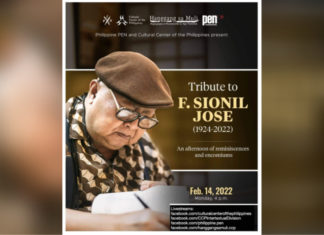SMALL private schools could be forced to shut down with the passage of the “Free Tuition Law” in state universities and colleges (SUCs), unless the government fully funds the law’s tuition subsidy and loan programs that would benefit private education institutions.
Republic Act (RA) 10931 or the Universal Access to Quality Tertiary Education Act promises free education for those enrolling in SUCs and technical-vocational institutions.
Lawyer Ada Abad of the Philippine Association of Colleges and Universities claimed the law was already taking its toll on enrollment in private schools, which could lead to faculty layoffs.
This could result in the shutdown of small private and parochial schools, she warned.
“It is possible that some private schools may be constrained to close. Decline in enrollment will lead to [fewer] students, and not as many teachers and personnel will be needed as well,” Abad told the Varsitarian.
Vincent Fabella, board member of the Coordinating Council of Private Educational Associations, said private schools in rural areas serving 2,000 enrollees or less would have difficulty competing with SUCs.
“A lot of [private schools] aren’t the big universities. A lot of these are in the rural areas, the places that state universities cannot access,” he said.
Figures from the Planning, Research and Knowledge Management Office of the Commission on Higher Education showed that there are 1,710 private higher education institutions (HEIs) in the country, of which 351 are sectarian schools and 1,359 are non-sectarian.
Delay in loan program
Fabella lamented the government’s announcement that full funding for the Student Loan Program, which could benefit students in private schools, would be delayed.
“[The government] doesn’t want to allocate [money for] the student loan [because] there is no mechanism yet to allocate the loan… The government should be looking at the positive [side that] all students will be contributing to the economy,” Fabella told the Varsitarian.
Fabella said the government was eyeing to fully fund the long-term loans in 2019 through the existing Unified Student Financial Assistance System for Tertiary Education or Unifast.
The Student Loan Program for college education offers loans in undergraduate and graduate studies, including review expenses for licensure examinations.
“Payment of the loan amount will commence once the beneficiary secures any gainful employment with compensation,” Section 8 of the new law states.
Fr. Joel Tabora, S.J., head of the Catholic Educational Association of the Philippines, said he doubted that the Free Tuition Law would cause the shutdown of small private schools.
“I do not foresee [the closing of private schools] as a result of RA 10931, provided that the law is properly implemented,” Tabora told the Varsitarian in an e-mail.
He said small private schools should focus on quality.
“In both public and private schools, the importance of quality must now be attended to. A small school will not be able to attract students if its quality is poor,” Tabora said.
‘Prioritize subsidy’
Economist Tereso Tullao, university fellow at De La Salle University, said the law’s proposed Tertiary Education Subsidy (TES) should prioritize students from poor families.
“The entire law should be a subsidy for the poor [to] let them choose whether they want to stay either in private or public college or university,” Tullao said.
The TES, under Section 7 of RA 10931, “may, among others, and to support the cost of tertiary education or any part or portion thereof,” including tuition and books. It covers SUCs as well as private HEIs.
UST Rector Fr. Herminio Dagohoy, O.P. said the viability of private schools would hinge on the implementation of the TES.
Dagohoy also expects UST’s enrollment to take a hit.
“On the introduction of free tuition fee, I don’t know if it would affect us [but] I am not very optimistic whether we would have the same number of enrollees next year because of the free tuition [law],” he told the Varsitarian in an interview.
Dagohoy said the University’s academic programs should be overhauled to mitigate the impacts of the law on the number of enrollees.
Abad agreed, saying private schools must stay “financially afloat” by “creating industry-driven curricula to improve competencies of graduates in the local and global market and ensuring that graduates will be able to find immediate employment in their partner industries.” with reports from Maria Crisanta M. Paloma
To investigate and expose unspoken issues and anomalies, send confidential news tips to the Special Reports team of the Varsitarian at specialreports.varsitarian@gmail.com or at THE VARSITARIAN office, Rm. 105, Tan Yan Kee Student Center, University of Santo Tomas, España, Manila.


















